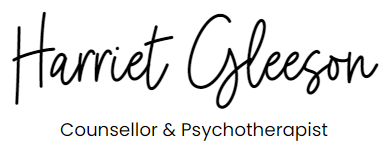What is relational therapy?
Relational therapy is based on the idea that your very earliest relationships with your parents provide a template for your current relationships and your relationship with yourself. Therefore, the therapeutic relationship is a really important part of healing, because what happens between the counsellor and client is often a repeat of how clients are in other relationships in their life. As a relational therapist, i will help you pay attention to what is going on between us to help you increase insight into relational difficulties with the aim of resolving them together.
Depending on what things were happening for you growing up, you have likely developed a number of strategies to manage tricky situations or family dynamics to protect yourself. This might show up in all kinds of ways, like avoiding telling people how you feel about them because it feels too vulnerable, not setting boundaries because you fear rejection or going out of your way to please others to try and earn their love and approval. Whilst these once kept you safe and helped you to get your needs met when you were little, they become outdated as you you continue to behave in the same ways with people that you don’t need to protect ourselves from anymore. This can get in the way of authentic connection and can cause a number of issues including overworking, perfectionism and anxiety.
When you have unresolved childhood trauma, you might also find yourself having big reactions to things that feel disproportionate or illogical. This is because when triggered, you respond to events in the present with the same intensity as the past. For example, feeling rejected will bring up old feelings from every other time you experienced rejection in your life too. When you start heal these traumas in therapy, you will notice that you get triggered less often, it’s less intense when you do, and you will come out of it quicker; until a point when previous triggers no longer affect you anymore.
How can relational psychotherapy help you?
Increased self-awareness: Noticing what patterns come up in our relationship that also happen in your other relationships (e.g. worrying what i think about you, the fear i might reject you, feeling jealous of other clients, an energy to ghost me instead of communicating a need to end therapy etc).
Break relational patterns no longer serving you: By increasing awareness of the challenges of relationships for you and consciously naming them, you can then choose to respond in a different, healthier way than repeating old patterns.
Healthy communication: Practice sharing how you feel, what you need from the therapy and setting boundaries, so you feel more confident doing the same in other relationships and have a positive template that nothing bad will happen in return.
Heal your inner child: By having your needs met, and being responded to differently by me than you have by others, this repairs early developmental failures and helps to heal your inner child (e.g. being heard and still cared for after you have expressed your feelings instead of abandoned).
Reduce emotional triggers: By processing your feelings about past events, it reduces their intensity in the present. This means you can respond to current events as they are, without the emotional intensity of all the other unresolved hurts combined that currently leave you feeling irrational and overreacting.
Deeper relationships: Relational therapy can support you to safely practice emotional intimacy at a deeper level so you can experience more emotionally intimate relationships with friends, family and romantic partners.
Our most meaningful and deepest relationships happen when our patterns of connection are stronger than our patterns of protection.
I’m here to help you do just that.
Contact me to arrange a FREE 20 minute discovery call to find out more.


